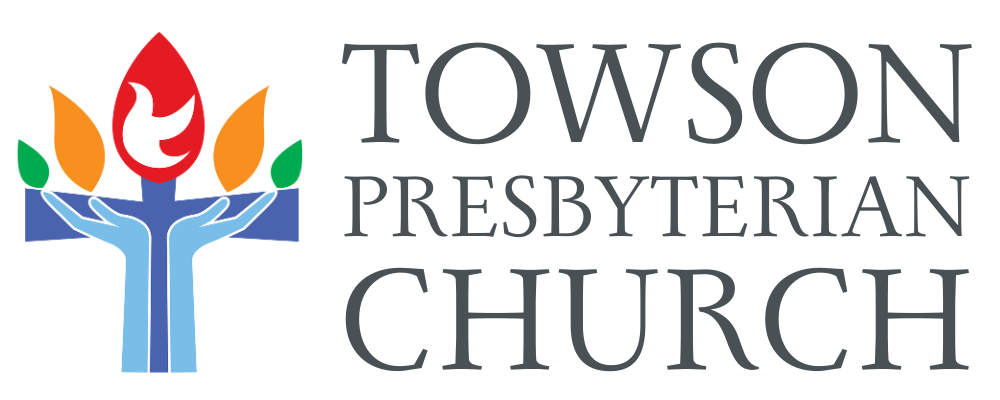Towson Presbyterian Church is part of the Presbyterian Church (USA). In many ways, our tradition is like a big umbrella offering all kinds of room for all sorts of perspectives. So not everybody agrees on everything. And that's just fine–we value diversity! But here's a quick glance at what our tradition believes:
It’s God’s gift of love and forgiveness to humanity. It’s what transforms old into new, and creates new possibilities where previously none existed!
We can’t do anything to earn God’s grace - God just gives it because God’s that generous!
What’s more, no one is beyond the reach of God’s grace. Think you’re too sinful? Nope! Think God can’t possibly love someone like you? Think again! Think what you’ve done is simply unforgivable? We don't!
God’s grace isn’t just for us or a selective few; God’s grace is for you!
We believe that everyone – every single person – is blessed with special gifts from God and called to use them. This means ministry isn’t just for a select few. Pastors are no holier than those in the pews, just as those in the pew are no holier than those who never set foot in a church.
Rather, we’re all invited to live in direct relationship with God as we use our gifts in service to God. Think this doesn’t include you? We do.
Sacraments are mysterious gifts that connect us to God in mysterious ways.
In baptism, people (infants, children, or adults) are sealed with the sign of God’s covenantal love. Baptism is the ultimate sign that nowhere we go and nothing we do can ever separate us from the grace of God.
In the Lord’s Supper (also called Communion and the Eucharist), we commemorate the last meal Jesus shared with his disciples by remembering his death and resurrection, and celebrating the gifts of grace and love Christ came to reveal, symbolized in broken bread and wine poured out for all.
God offers each and all the gift of fullness of life in the here and the now, uncovered as we live into God’s will and love for us. This is one form of salvation.
We also believe that God blesses us with the gift of salvation in heaven upon death. So while death may be scary, it doesn’t have the last word. God does. And God’s word leads to life!
Contained in two testaments, the Bible reveals the history of God’s relationship with Israel (Old Testament), as well as God’s incarnation in Jesus and the early formation of the Church (New Testament). We believe it is the clearest revealation of God's will and truth that we have.
Still, we don't simply read Scripture and say "that's that." We believe Scripture should be studied, interpreted, and applied to life today. So we ask tough questions of Scripture as we wrestle with it, curious as to the way Scripture can shape the way we see and live in the world today.
God is the ultimate ruler over all the world. But it’s not like God’s the puppeteer and we’re all marionettes. God doesn’t rule with an iron first, but loves us enough to give us freedom to either live amid God’s love or according to our own wills.
Life has taught us that things don’t often go the way we hope when we chase after our own pursuits. Thankfully, that God is sovereign means that while bad things can and do occur, we can trust that God’s love and grace will ultimately reign supreme.
Is it mysterious? Yes! Confusing? Absolutely! One of the most confounding beliefs throughout Christianity is the belief in a Triune God—a God who’s three-in-one. The three persons of the one, singular God are:
Creator (God the Father) – God the Creator not only created the world, but rules over it with truth and grace.
Redeemer (God the Son) – Jesus Christ, God incarnate (or God in the flesh) who was fully human and fully divine. Christ came to reveal the fullness of God’s love for creation, and to show humanity how to live in and out of this love.
Sustainer (God the Spirit) – The Holy Spirit is God’s presence alive and at work in the world and within us, empowering us to use the blessings of God to be a blessing for God.
